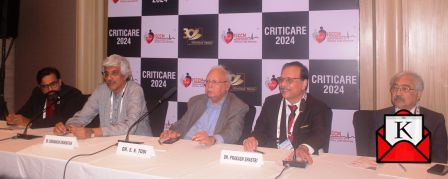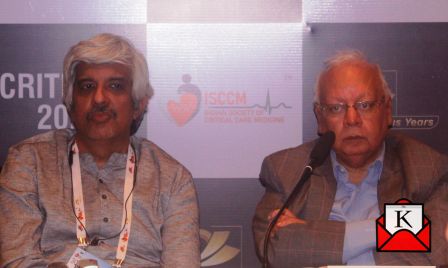Eminent Doctors Broke Myths About Antibiotics In India


To educate and increase public awareness of “Anti-microbial resistance” and the associated public health issues, the Indian Society of Critical Care Medicine (ISCCM) collaborated with some of the country’s top physicians to host a conference where they would share their perspectives on the state of medicine in India.
Antimicrobial resistance happens when bacteria, fungi, and other microorganisms learn to withstand the medications meant to eradicate them, which leads to the proliferation of the microorganisms. Treatment for resistant infections can be challenging and sometimes unattainable. Inadequate diagnosis and improper use of antibiotics are two main contributing factors to this. Medical professionals must prescribe antibiotics correctly. It is crucial to recognize the growing necessity of preventing hospital-acquired infections that cause these kinds of illnesses. The implementation of the Public Private Partnership (PPP) model in the healthcare sector may be able to curb the occurrence of this issue since it facilitates the optimal utilization of the medical infrastructure. Educating the public about the proper and improper use of antibiotics can be the first step in bringing about changes.
Eminent doctors like Dr. S K Todi, Dr. Prakash Shastri, Dr. Subramanian Swaminathan, Dr. Sanjith Saseedharan, Dr. Dhruva Chaudhry, and Dr. Ajoy Sarkar broke the myth that antibiotics can treat everything without any side-effects.
Some of the problems highlighted were:
- The reason why appropriate usage of antibiotics is neglected in India is due to their accessibility through counters. According to a recent publication, Delhi’s water supply contains extremely dangerous bacteria that are resistant to ordinary antibiotics. This new and unique resistance mechanism was discovered in Delhi and is known as the New Delhi mechanism. However, just because a sickness like this occurs in India, doesn’t mean that India is its source. Therefore, everyone has to learn about such dire circumstances and refrain from spreading misinformation.
- We all tend not to take cancer, cholesterol, or blood pressure medications when we’re feeling under the weather, yet when we get a mild illness, we often take antibiotics. According to a record list, drug-resistant germs will kill more people by 2050 than cancer, and the financial toll will be disastrous. We should be aware that these antibiotics are intended to serve a specific purpose. It’s time for people to recognize that not every issue can be solved with antibiotics. Patients should be satisfied to forego these antibiotics unless necessary. Furthermore, this problem cannot be remedied unless all parties involved—the government, medical professionals, pharmaceutical companies, and society at large—cooperate.
- Today, antibiotics are also used as anxiety reducers. When antibiotics were nonexistent a long time ago, people were dying. Today, we have millions of antibiotics, but even if no one is dying, there is a possibility that we won’t have access to therapy. The anti-antibiotic era is giving way to the pre-antibiotic age.
Antibiotics were not truly available to us until 1940. Since the discovery of penicillin by Alexander Fleming, antibiotics have been flooding society like water in the ocean. These antibiotics are available everywhere else, but relatively few of them will be effective in the foreseeable future, returning us to the time before antibiotics.
Hence, one should take antibiotics rationally, and responsibly and not abuse the intake of such medicines.
Priyanka Dutta
